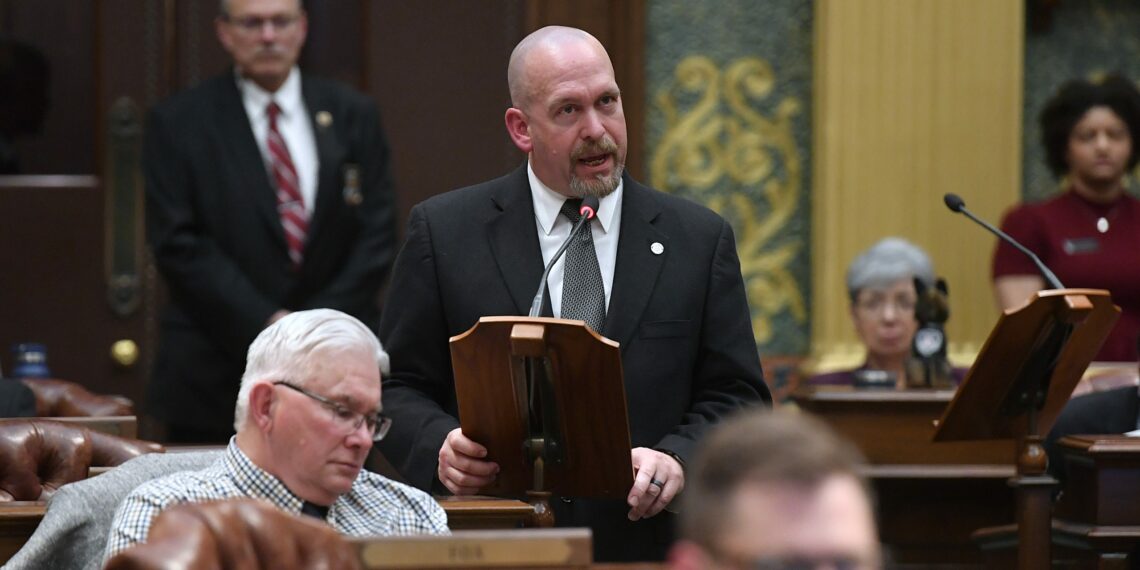Rep. Harris calls for stronger transparency after Legislature passes weak bills
State Rep. Mike Harris called for greater transparency in state government after the Legislature passed bills that failed to require broad financial disclosure for state officials.
Despite bipartisan objections from Harris and other lawmakers, the House of Representatives approved Senate Bills 613-616 in a 2:30 a.m. vote last Thursday. Michigan voters approved Proposal 1 in 2022 — a constitutional amendment to require legislators, the governor, and other state officials to report their personal finances — and Harris, R-Waterford, said the bills should have required more detailed disclosure, tougher penalties, and stronger ethical standards.
“Carrying out the will of the voters to finally make elected officials reveal their personal finances was the Legislature’s number one job this year, and that’s why my Republican colleagues and I rolled out a real transparency plan months ago,” said Harris, who serves on the House Ethics and Oversight Committee. “Unfortunately, after months without committee hearings on our comprehensive plan, the slimmed down final product was introduced at the last minute and rushed across the finish line in the final session days of the year. This hasty process failed to yield the strong results Michigan voters want. The bills simply do not require state officials to disclose very detailed information about their finances, and potential conflicts of interest will go unnoticed as weak ethics rules go unenforced. I voted against this half-baked legislation, and I’ll keep working to secure real transparency and accountability measures for our state government.”
The constitutional amendment, which Harris voted to put on the ballot last year, requires the Legislature to establish the disclosure requirements by the end of 2023. Harris sponsored more detailed implementation legislation in March as part of a broader transparency plan, but the Democratic-majority Legislature did not take action on Harris’ House Bill 4269 or the other Republican bills. Instead, the speaker moved the weaker legislation, which was not introduced until late October.
Unlike Harris’ proposal, the bills that passed the Legislature do not require details about how much an official earns from other sources of income or the value of assets, and the bills only require disclosure of a gift or travel payment if a lobbyist has already reported it. The House rejected Republican amendments to require disclosure of immediate family members who have a conflict of interest related to legislative issues. The majority also rejected another amendment to add in Republican bills to create bipartisan legislative ethics committees to enforce heightened conflict-of-interest rules.
In addition to stronger financial disclosure and enforceable ethical standards, the House Republican plan would expand the Freedom of Information Act to subject the records and communications of the Legislature and governor’s office to disclosure requests. The entire House Republican plan remains in the House Ethics and Oversight Committee, which did not hear testimony on a single bill all year.
SBs 613-616 now proceed to the governor for her consideration.




